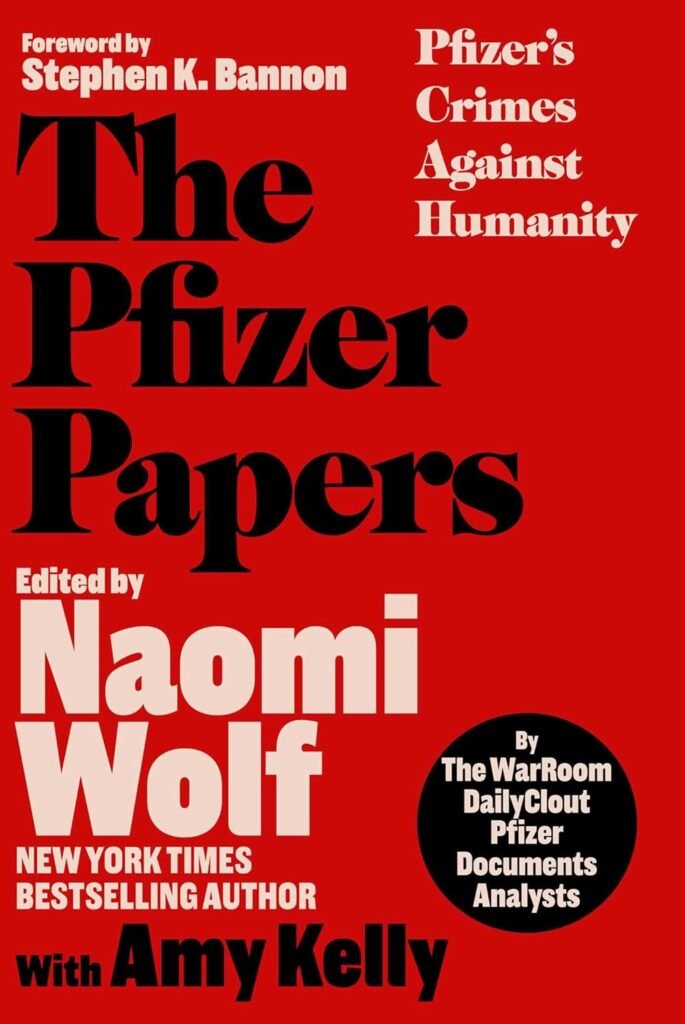Have you ever come across a book or report that challenges everything you thought you knew about a global entity? When you encounter “The Pfizer Papers: Pfizer’s Crimes Against Humanity,” you might find yourself asking some big questions while wrestling with the new perspectives it presents. This fascinating product promises to deliver a detailed glimpse into the practices of one of the world’s pharmaceutical giants. Let’s take a closer look.
Unveiling the Truth: What Are The Pfizer Papers?
With a title that demands attention, “The Pfizer Papers: Pfizer’s Crimes Against Humanity” seems intent on revealing secrets or perspectives that might have been overlooked by the general public. But what exactly do these papers involve, and how are they structured?
The Intention Behind The Documents
Set against the backdrop of intricate legal and ethical debates, this collection aims to scrutinize Pfizer’s operations over recent decades. It’s not just about pointing fingers; it’s about dissecting practices, offering insights, and challenging readers to think critically about corporate responsibility in the pharmaceutical world.
Structure and Composition
The documents are structured methodically, ensuring that even the most complex topics are accessible. It’s divided into sections that cover different aspects of Pfizer’s dealings, ranging from financial maneuvers to ethical implications. This organization aids in shedding light on the nuanced dynamics of Pfizer’s corporate strategies and decisions.
The Content: What’s Inside The Papers?
At the heart of “The Pfizer Papers” is an in-depth look at how Pfizer has operated, both publicly and behind the scenes. It’s about understanding the ethos and actions of one of the most influential pharmaceutical companies.
Financial Insights
One of the main focuses of the papers is Pfizer’s financial practices. You’ll find detailed notes on their revenue streams, tax practices, and investment strategies. It’s a captivating read for anyone interested in the financial machinations of a global corporation.
| Year | Revenue ($ Billion) | Net Income ($ Billion) |
|---|---|---|
| 2018 | 53.6 | 11.2 |
| 2019 | 51.8 | 16.3 |
| 2020 | 41.9 | 9.6 |
This table provides a snapshot showing fluctuations in financial figures that can raise questions or provide clarity on how Pfizer navigated different fiscal years.
Ethical Concerns
One can’t overlook the emphasis on ethical considerations within the papers. They ask hard-hitting questions about clinical trials, the transparency of drug safety information, and the influence of profit motives over patient welfare. This section challenges you to consider whether the ends justify the means in the pharmaceutical industry.
Case Studies Highlighted
Several case studies are detailed within the pages, offering concentrated views on key events or decisions. Each study serves to illustrate larger patterns and potential issues at play in Pfizer’s history, providing concrete examples to ground the broader analyses.
The Impact: What Does This Mean For You?
Reading “The Pfizer Papers” is a call to action, urging you to consider the broader implications of corporate responsibility and pharmaceutical ethics. It’s a text that can leave you contemplating the balance between innovation and morality.
Implications for Public Health
Pfizer’s role in global health has been significant, and these papers prompt a deeper reflection on how pharmaceutical giants shape public health policy. The challenges presented might inspire you to think critically about the impact of these decisions on everyday lives and communities.
Legal Ramifications
For those interested in the legal landscape, the papers provide an insightful look into the legal challenges faced by Pfizer. It’s not just about lawsuits but the broader legislative environment shaping how pharmaceuticals operate and the legal accountability they bear.
Personal Responsibility and Action
More than just a collection of facts, “The Pfizer Papers” encourages a personal reflection on one’s role as a consumer or participant in the health industry. It urges you to consider how informed decisions and active participation can drive change in corporate operations and ethics.
Final Thoughts: To Read or Not to Read?
After delving into the analytical depths of “The Pfizer Papers,” it’s clear the product delivers a compelling take on Pfizer’s history and practices. The combination of rigorous data, case studies, and insightful commentary could make this a must-read for those wanting to engage deeply with pharmaceutical ethics and corporate governance.
Reading this report could be a transformative experience, broadening your understanding of how companies like Pfizer impact the world, and what it truly means to hold a corporation accountable. If you’re ready for a journey into the complexities of global industry practices, “The Pfizer Papers” might just be what you’re looking for—a tool to educate, challenge, and inspire.
Disclosure: As an Amazon Associate, I earn from qualifying purchases.





